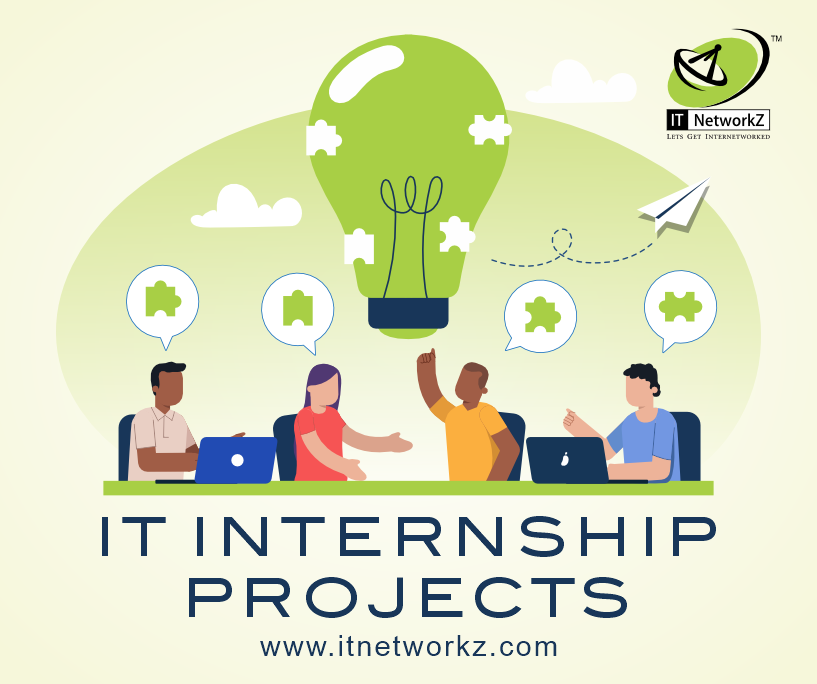Expert Opinion
Gain Insights from Industry Leaders and Career Experts
Looking for guidance on navigating your career path or maximizing your internship experience? Our Expert Opinion section provides valuable advice and insights from seasoned professionals and industry leaders. Networking is a crucial component of career development, especially for those embarking on internships and job searches. Here are some expert tips to help you build meaningful connections and leverage your network effectively.
Here’s how you can benefit:
Featured Topics Include:
1.Start with Your Existing Network: Begin by reaching out to friends, family, and acquaintances. They can provide valuable introductions and insights that might open doors to new opportunities.
2. Attend Industry Events: Participate in conferences, workshops, and seminars relevant to your field. These events are prime opportunities to meet professionals, learn about industry trends, and engage in discussions that could lead to job referrals.
3. Leverage Social Media: Use platforms like LinkedIn to connect with industry leaders, join relevant groups, and participate in discussions. Regularly update your profile and engage with content to stay visible in your professional community.
4. Be Genuine and Authentic: When networking, focus on building real relationships rather than just seeking immediate benefits. Show genuine interest in others’ work and offer help where you can. Authentic connections are more likely to lead to lasting professional relationships.
5. Prepare Your Elevator Pitch: Have a concise and compelling introduction ready that highlights your skills, experiences, and career goals. This will help you make a strong first impression and effectively communicate your value.
Follow Up: After meeting someone, send a personalized follow-up message thanking them for their time and expressing your interest in staying connected. This reinforces your commitment and helps keep the relationship active.
Seek Mentors: Identify and approach experienced professionals who can offer guidance, feedback, and support. Mentors can provide valuable insights and open up new networking opportunities through their own connections.
Join Professional Associations: Becoming a member of relevant professional organizations can provide access to exclusive networking events, resources, and industry news.
Be Consistent: Networking is not a one-time activity but an ongoing process. Regularly engage with your network, attend events, and stay updated with industry developments.
For more expert advice on networking and other career-related topics, visit our 1trainee.com and take charge of your career development today!
In a crowded job market, differentiating yourself from other trainees is essential to securing your dream job. Here are some expert strategies from 1trainee.com to help you stand out and make a lasting impression:
Craft a Unique Personal Brand: Define what makes you unique—your skills, experiences, and personal attributes. Develop a strong personal brand that highlights your value proposition. Use this brand consistently across your resume, LinkedIn profile, and personal interactions.
Tailor Your Resume: Customize your resume for each internship / job application. Highlight relevant skills, experiences, and accomplishments that align with the specific requirements of the job and the company’s needs.
Showcase Quantifiable Achievements: Instead of listing job duties, focus on quantifiable achievements. Use metrics and specific examples to demonstrate how you’ve added value in previous roles. This helps potential employers see the tangible impact you can make.
Build a Strong Online Presence: Create and maintain a professional online presence. Regularly update your LinkedIn profile, engage with industry content, and share your own insights or accomplishments. A well-curated online profile can attract the attention of recruiters and hiring managers.
Develop and Showcase Niche Skills: Identify and cultivate skills that are in high demand but not common among all trainees. These niche skills can set you apart from the competition and make you more attractive to employers.
Leverage Networking Opportunities: Build and maintain relationships within your industry. Attend industry events, join professional organizations, and connect with people in your field. Networking can lead to referrals and insider information about job openings.
Prepare for Interviews Thoroughly: Research the company and the role you’re applying for. Prepare thoughtful questions to ask during the interview and be ready to discuss how your skills and experiences align with the company’s goals and challenges.
Demonstrate Enthusiasm and Cultural Fit: Show genuine enthusiasm for the role and the company. Emphasize how your values align with the company’s culture and mission. Employers are often looking for trainees who are not only skilled but also a good fit for their team.
Obtain and Showcase Recommendations: Secure strong recommendations from previous employers, colleagues, or mentors. Positive endorsements can validate your skills and character, adding credibility to your application.
Continuously Learn and Adapt: Stay updated with industry trends and continuously seek opportunities to learn and grow. Demonstrating a commitment to professional development shows employers that you are proactive and dedicated to your field.
For more expert advice on standing out in the job market and other career strategies, visit 1trainee.com. Equip yourself with the tools and insights you need to excel in a competitive job environment!
In today’s dynamic work environment, technical skills are one vital part of the equation. 1trainee.com believes that Soft skills—such as communication, teamwork, and adaptability—play a crucial role in achieving professional success and fostering a positive workplace culture. Here’s why soft skills are essential and how they can make a significant impact in your career:
Effective Communication: Clear and concise communication helps in building strong relationships with colleagues, clients, and stakeholders. It ensures that ideas and feedback are shared efficiently, reducing misunderstandings and fostering collaboration.
Teamwork and Collaboration: Being able to work well with others is critical in most work environments. Strong teamwork skills facilitate effective collaboration, enhance problem-solving, and contribute to achieving common goals.
Adaptability and Flexibility: The ability to adapt to changing circumstances and embrace new challenges is highly valued. Adaptable employees can handle unexpected situations with ease and remain productive in a fast-paced and evolving workplace.
Emotional Intelligence: Understanding and managing your own emotions, as well as empathizing with others, enhances interpersonal relationships and conflict resolution. Emotional intelligence contributes to a positive work environment and improves overall team dynamics.
Problem-Solving Skills: Soft skills like critical thinking and creativity are essential for identifying and addressing issues effectively. Strong problem-solving abilities enable you to find innovative solutions and navigate complex situations.
Time Management: Effective time management helps in prioritizing tasks, meeting deadlines, and maintaining productivity. Good time management skills reduce stress and ensure that work is completed efficiently and on schedule.
Leadership and Initiative: Demonstrating leadership qualities and taking initiative can set you apart from your peers. Leaders inspire others, drive change, and contribute to the strategic direction of their team or organization.
Conflict Resolution: The ability to address and resolve conflicts constructively is vital for maintaining a harmonious work environment. Skilled conflict resolution helps prevent issues from escalating and fosters a culture of respect and understanding.
Professionalism and Work Ethic: Displaying professionalism, reliability, and a strong work ethic builds trust and respect among colleagues and supervisors. It reflects your commitment to your role and contributes to a positive organizational reputation.
Customer Service and Interpersonal Skills: For roles involving client or customer interaction, strong interpersonal skills and a focus on customer service are crucial. These skills help in building positive relationships and ensuring client satisfaction.
Developing and honing your soft skills is as important as acquiring technical expertise. Investing in these skills can enhance your career prospects, improve your workplace relationships, and contribute to your overall professional growth.
For more expert insights on soft skills and their impact on your career, visit www.1trainee.com . Equip yourself with the skills that drive success and make a difference in your professional journey!
Navigating Your First Internship: What to Expect and How to Succeed Starting your first internship can be both exciting and daunting. It’s a crucial opportunity to gain real-world experience, build your professional network, and develop your skills. Here’s what to expect and how to make the most of your internship experience:
Set Clear Goals: Before starting, identify what you hope to achieve during your internship. Whether it’s learning specific skills, understanding industry dynamics, or networking, having clear goals will help you stay focused and measure your success.
Understand the Company Culture: Every organization has its own culture and work environment. Take time to observe and adapt to the company’s norms, values, and expectations. Understanding the culture will help you integrate smoothly into the team and perform effectively.
Be Proactive and Take Initiative: Don’t wait for tasks to be assigned to you. Look for opportunities to contribute, offer to help with projects, and show eagerness to take on new challenges. Proactive behavior demonstrates your commitment and can lead to more meaningful responsibilities.
Communicate Effectively: Keep open lines of communication with your supervisor and colleagues. Regularly update them on your progress, ask for feedback, and seek clarification if needed. Effective communication helps in building strong relationships and ensures that you’re aligned with the team’s expectations.
Seek Feedback and Act on It: Constructive feedback is a valuable tool for growth. Actively seek feedback from your mentor or supervisor and use it to improve your performance. Showing that you can adapt and learn from feedback highlights your willingness to grow.
Build Professional Relationships: Take advantage of networking opportunities by connecting with colleagues, attending company events, and engaging with professionals in your field. Building a strong network can provide you with future job leads, recommendations, and valuable insights.
Manage Your Time Effectively: Balancing multiple tasks and deadlines is key to a successful internship. Use time management techniques such as prioritizing tasks, setting deadlines, and avoiding procrastination to stay organized and productive.
Embrace Learning Opportunities: Be open to learning from every experience, whether it’s a challenging project or a routine task. Every aspect of your internship offers a chance to gain new skills and knowledge.
Maintain a Positive Attitude: Approach your internship with enthusiasm and a positive mindset. Being adaptable, friendly, and willing to learn will not only enhance your experience but also leave a lasting impression on your colleagues and supervisors.
Reflect on Your Experience: Regularly reflect on what you’re learning and how it aligns with your career goals. Use this insight to adjust your approach, make the most of the opportunity, and prepare for your next career steps.
Navigating your first internship can be a transformative experience. By setting clear goals, being proactive, and embracing every learning opportunity, you can make a significant impact and pave the way for future career success.
Explore our expert opinions to enhance your career journey and make informed decisions. Visit www.1trainee.com to read the latest articles, watch interviews, and get the insights you need to thrive.
Important Information
Stay updated on the latest interview tips and resources!
Important Information
Stay updated on the latest interview tips and resources!
Important Information
Stay updated on the latest interview tips and resources!
Important Information
Stay updated on the latest interview tips and resources!
Important Information
Stay updated on the latest interview tips and resources!
Important Information
Stay updated on the latest interview tips and resources!
Important Information
Stay updated on the latest interview tips and resources!
Important Information
Stay updated on the latest interview tips and resources!
Important Information
Stay updated on the latest interview tips and resources!
Important Information
Stay updated on the latest interview tips and resources!
.jpg)
.jpg)


.jpg)




